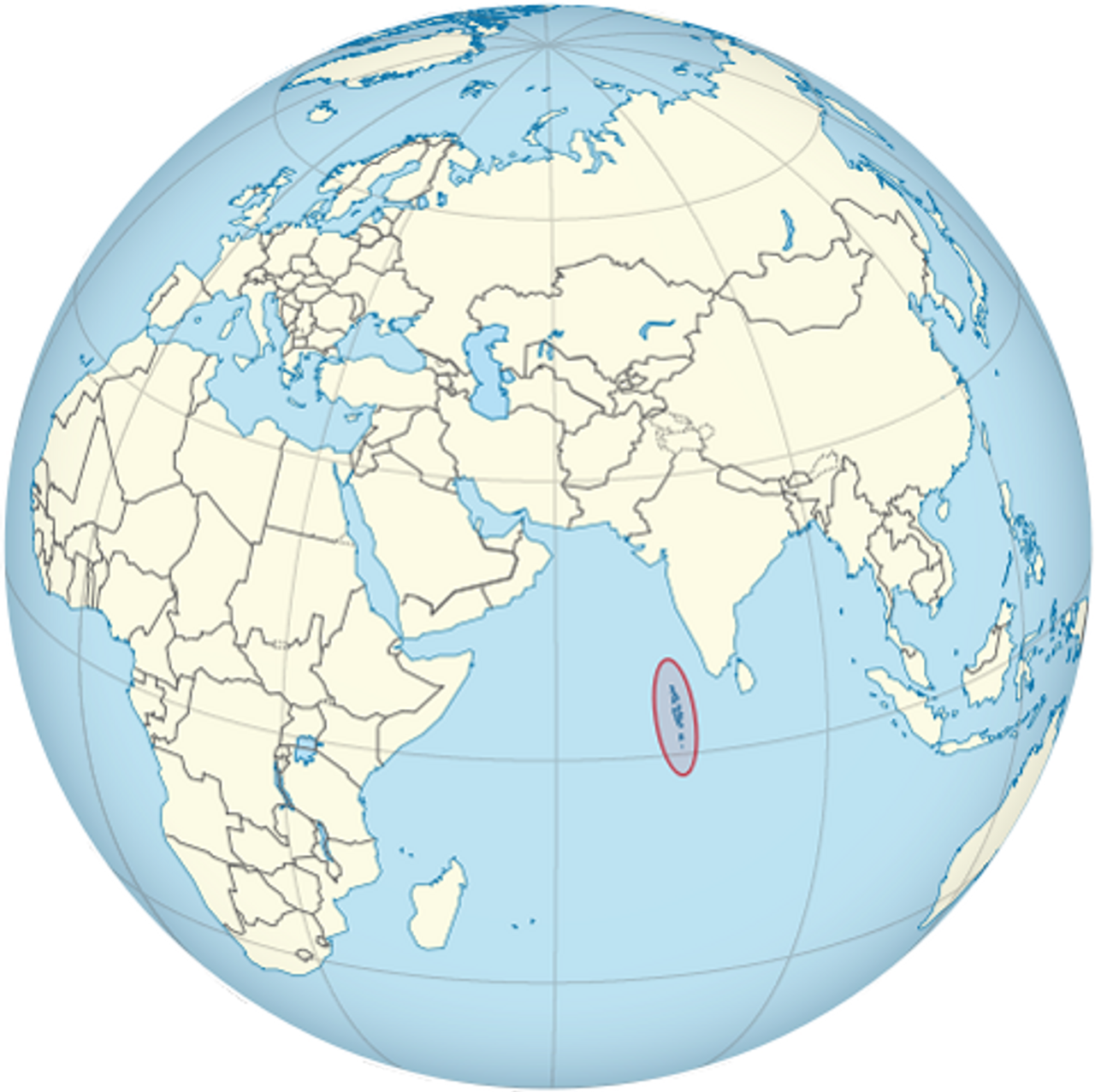On February 15 Indian Foreign Secretary Ranjan Mathai visited Male, the capital city of the Maldives, to arrange a deal with the country’s political parties, including ousted President Mohammad Nasheed’s Maldives Democratic Party (MDP).
This shaky deal advances the presidential election, with the agreement of the Maldivian political parties. This is another attempt by New Delhi to use the political crisis in the Maldives, a strategically-located island chain in the Indian Ocean, to its advantage.

Protests broke out throughout the island chain after the police and military ousted Nasheed, the country’s first president elected in multi-party elections, in a February 7 coup. Nasheed’s deputy, Mohammad Waheed Hassan, went to the side of the opposition and was installed as the new president.
The US and India endorsed the coup, rapidly recognizing the Hassan government. Amid growing protests and riots by members and supporters of Nasheed’s MDP against new regime, Indian and US envoys visited the country in an attempt to convince Nasheed into a “national unity government” with Hassan. Nashid refused, however.
Mathai held discussions with Hassan, Nasheed, and other leading officials. In a press briefing at the Indian High Commission at Male on February 16, Mathai said: “[A]ll the parties concerned agreed that . . . the government of national unity will hold discussions with all relevant parties to conduct elections by an early date.”
He added, “The government of national unity will work towards conditions that will permit such elections to take place, including any necessary constitutional amendments.”
There is no agreement on election date yet, as the forces that came to power in the coup stall for time. Hassan told Haveeru: “Election dates can be finalized by dialog”.
Although he was elevated to presidency by unconstitutional means, Hassan said that the MDP needs to be “more civil in their conduct,” shamelessly claiming that the debate over whether to hold elections should be carried out “within the contours of the constitution.”
Following the Mathai-brokered deal, Nasheed pulled back from his earlier demands for Hassan to step down immediately and for the holding of snap elections. Nasheed also reversed his criticisms of India’s backing of the Hassan government. After Mathai’s press briefing, Nasheed told reporters that he was now satisfied with New Delhi's “realistic approach” to the coup.
Nasheed’s maneuvers revealed the explosive strategic rivalries in the Indian Ocean that drive the policy of the Maldivian bourgeois parties. Talking to Press Trust of India the day before Mathai’s visit, Nasheed lamented that New Delhi took his party “for granted,” warning India that it may “lose leverage” to China under Hassan’s regime.
Nasheed said that, unlike the opposition Progressive Party of Maldives (PPM) of former president Moumoon Abdul Gayoom, whom he defeated in 2008, Nasheed’s MDP was “pro-India by ideology”. According to Nasheed, when he came to power in 2008 there was a defence agreement with China, which was supposed to have been renewed in 2009. Nasheed claimed that now the PPM “will probably sign it”.
Such statements, which are hardly credible given the PPM’s ties to a US- and Indian-backed coup, reflect Nasheed’s bankrupt politics: his strategy is to win the support of major powers like the US and India, arguing he would be a reliable agent of their strategic interests against China. New Delhi and Washington are ignoring his appeals, however, amid growing international tensions in this strategic region.
The US is backing an India-brokered deal. US State Department spokeswoman Victoria Nuland said on February 17 that Washington “welcomes the efforts that all sides appear to be making to find a peaceful way forward”.
Noting that the US is “closely coordinating with India” on the Maldives, she added: “Our understanding is that we are pretty well in lockstep with India in terms of calling for a unity and calling for a democratic, peaceful path forward.”
US imperialism’s support for the coup—which it cynically labels a “democratic, peaceful path”—reflects its attempts to court India as a strategic partner in Asia, particularly so as to counterbalance China. The Pentagon’s new strategic guidance, “Sustaining US Global Leadership: Priorities for 21st Century Defense,” named India as “a regional economic anchor and provided of security in the broader Indian Ocean region”.
Breaking its silence nearly one week since the Maldivian coup, China expressed its support for the new Hassan government and its readiness to work with it.
Foreign Ministry spokesman Liu Weimin told journalists in Beijing: “We respect the independent choice of its [the Maldives’] people and sincerely hope that the country can realize national stability, social harmony and economic development at an early date.” He added: “China would like to work closely with the Maldives government and push for steady, sound and smooth development of bilateral relations.”
Since 1972, when China and the Maldives first established diplomatic relation, Beijing has gradually developed its influence in the island nation. Even though Nasheed has shown his willingness to accommodate India, China has continued to expand its influence in the Maldives, where it has real estate and shipping interests.
China is reportedly developing Ihacadhoo and Maarandhoo islands with transshipment ports and doing some construction at the Maldives’ second international airport at Hanimaadoo. “China wants a presence in these islands since they are the closest to India and Sri Lanka,” the Times articles quoted one official.
Some reports claim that Beijing plans to establish a submarine base in Marao, one of largest of 1192 coral islands and lying just 40km south of Male.
For its part, India sought to boost its influence in the Maldives. In late 2009, the Maldives acceded to India’s request to deploy 26 coastal guard vessels to monitor its territorial waters. According to the Jakarta Post, “India coastal guards and naval vessels would patrol the Maldives’ territorial waters and exclusive economic zone, and a private Indian company was contracted to refurbish the former British Gan island air base for use by Indian reconnaissance and surveillance aircraft.”
